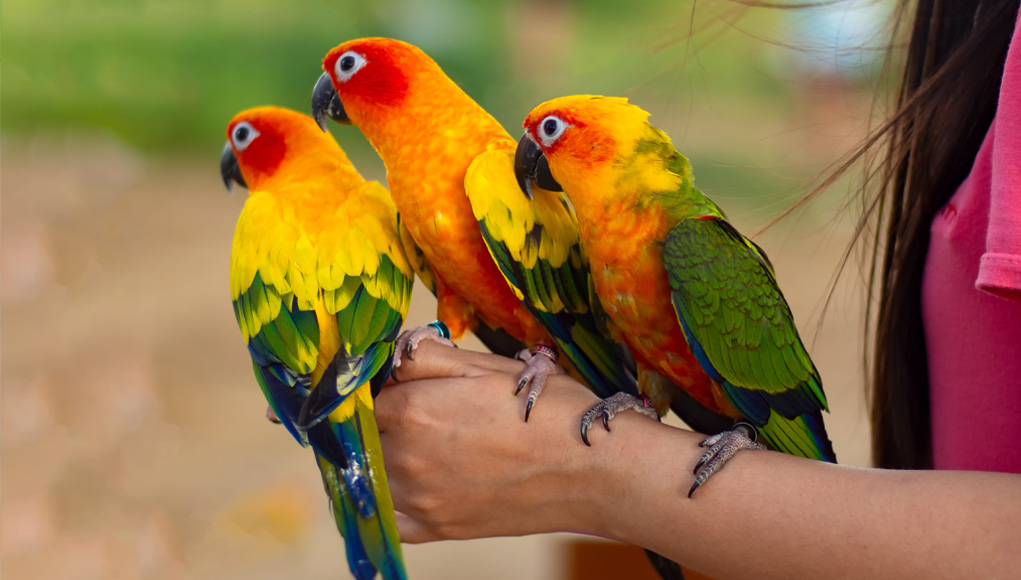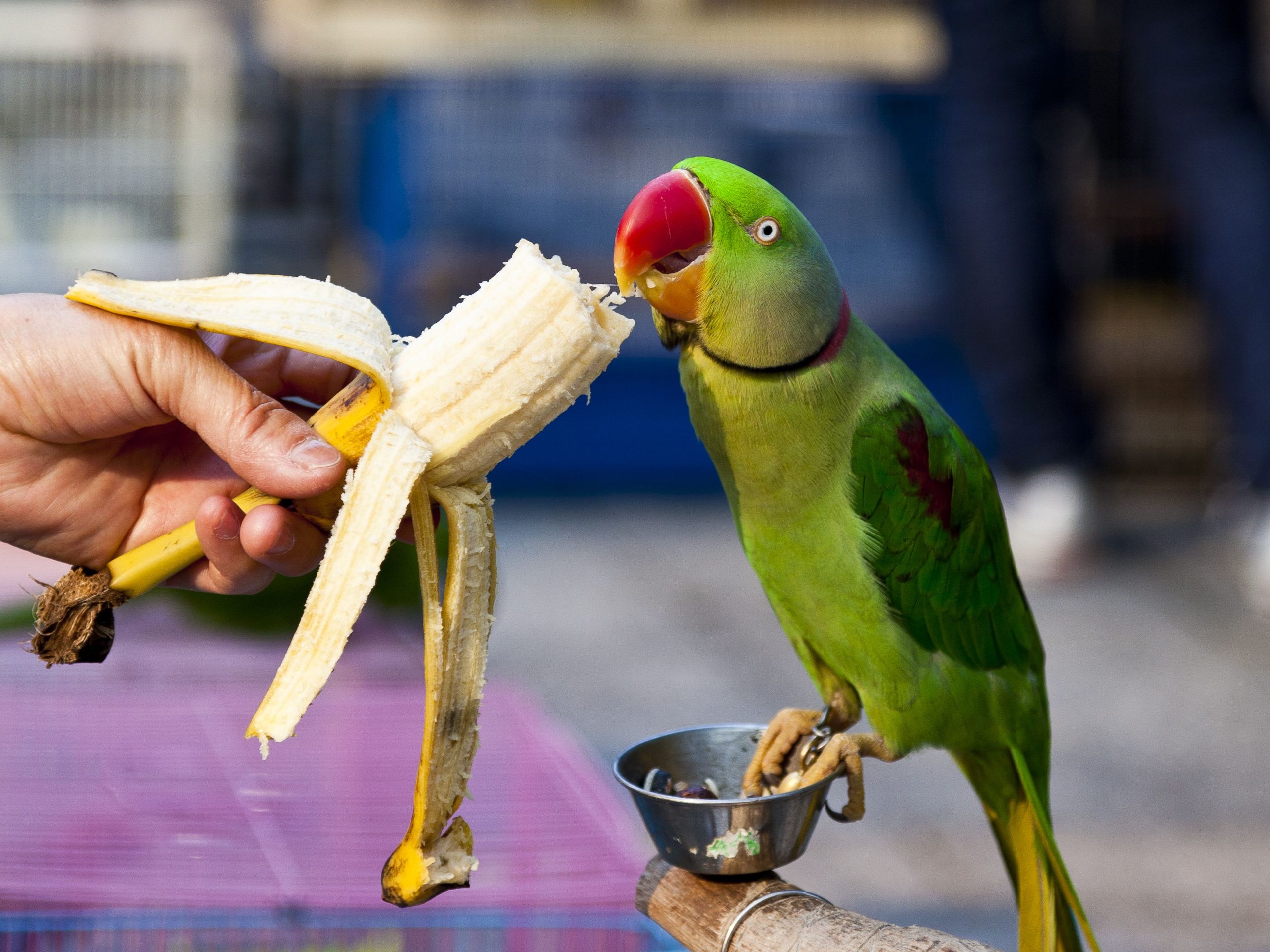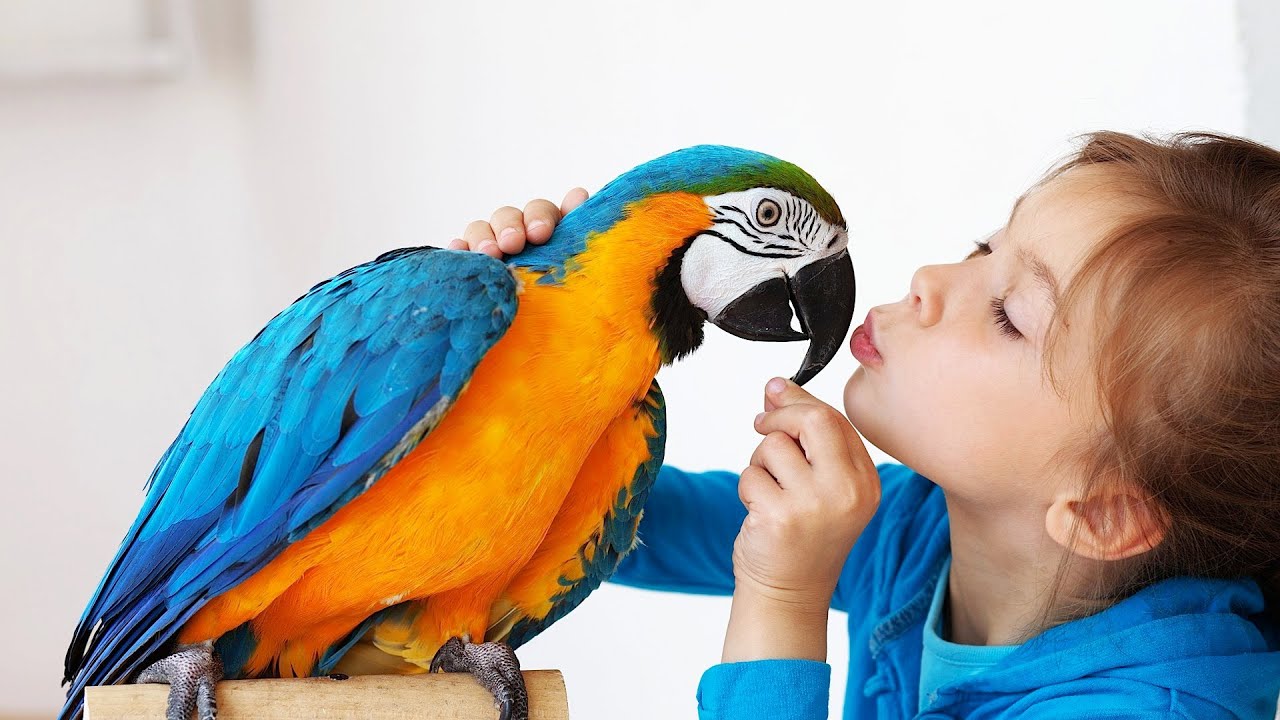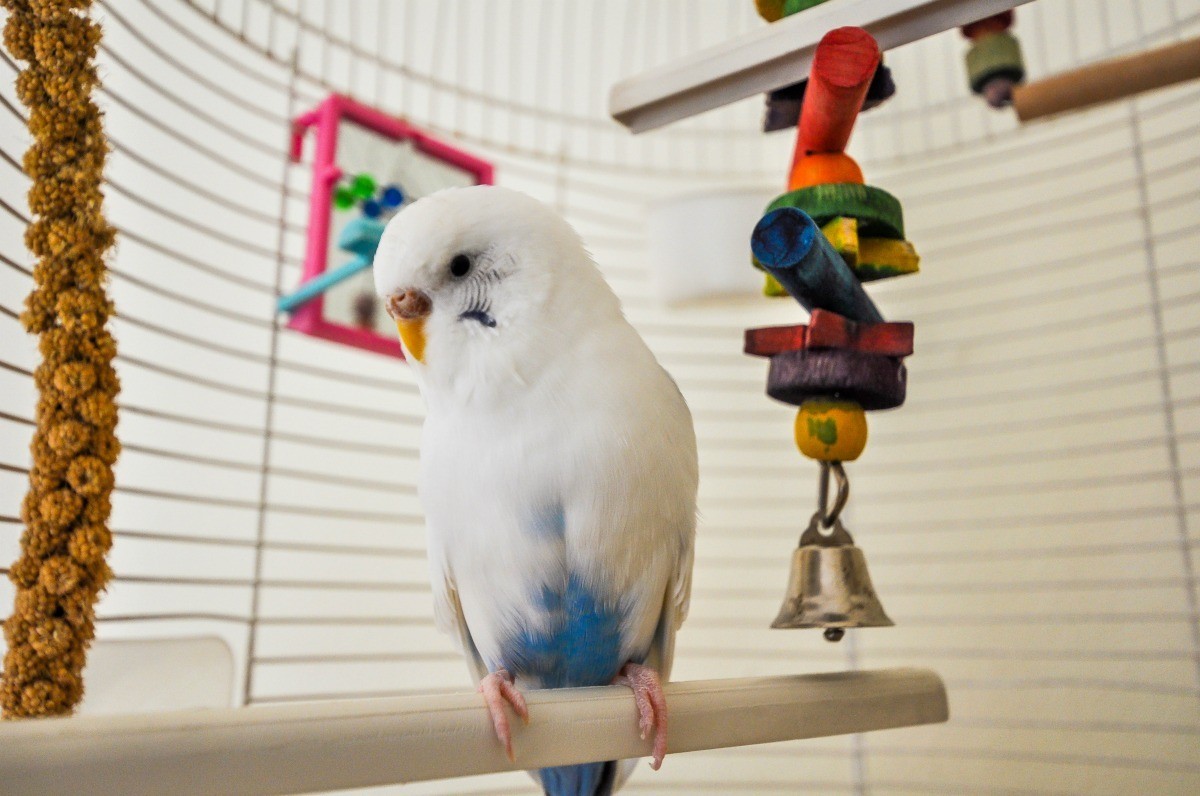Are you sure that you are taking care of your pet bird in the right way? Please read on if you want to learn how to properly take care of your feathered friend!

Your pet bird’s general care.
It is important to take good care of your pet bird. For this, the right diet, a clean cage, fresh food and water, safe toys, exercise, and lots of attention are just the basics. Incidentally, cages should have plenty of room for activity and a grate to separate your pet bird from the substrate.
Your pet bird’s diet and treats.
Birds eat a wide variety of food items in nature, foraging to meet their needs. Your pet bird will therefore need a good mix of seeds, nuts, vegetables, and fruits for nourishment! You can also buy pre-mixed bird foods with all the required nutrients from the market!
Your pet bird’s interaction and socialization.
Understanding normal bird behavior in the wild is very important for you to understand their behavior as companions. For instance, parrots are social animals in the wild. They roost, fly, and forage in flocks. Did you know that your family is the flock for your pet bird and that it also wants to be part of your family activities? This explains why my pet bird screams to get my family’s attention if we are in separate rooms!
Your pet bird’s cages and environment.
In general, the larger your bird cage, the better it is. This is because pet birds need room to exercise their wings and climb. Likewise, a variety of bird toys provide these intelligent animals with plenty of enriching activities! Examples of interesting bird toys include swings and bells!

Your pet bird’s intelligence.
Some pet bird breeds, such as macaws and amazon parrots, have a good memory and can mimic speech and the sounds that they hear around them. They are also extremely curious and enjoy simple puzzles.
Why do routines matter?
A well-planned daily, weekly, and monthly routine are good for you and your pet bird. Since they are intelligent, they adapt very well to routines. Furthermore, if you stick to a regular routine, you can be sure your birds are being met. This includes maintenance of its habitat, exercise, mental stimulation, diet, grooming, and training.
Your bird’s daily routine.
This is a daily routine plan for your pet bird to stay healthy, comfortable, and stable:
Waking up time: This may include greetings and first feeding. However, the waking up time of your pet will naturally change with the seasons because the time for sunrise will change too!
Mealtimes: Most birds eat once in the morning and once in the evening. This is a great time to remove uneaten food and to clean food and water dishes.
Changing tray papers: The liner on the bottom of your bird’s cage should be changed daily to prevent the buildup of feces and debris that can harbor bacteria, mold, or toxins.
Cage care: You should also check the cage for damage in order to prevent escape or injury.
Misting: Most pet birds enjoy a light misting to help them stay clean and preened.

Socializing: Birds are social animals and need to spend time with their family. Take the time for games, training, talking, dancing, and stepping up once or twice a day.
Cage-free time: Taking your bird out of its cage once or twice a day gives it mental stimulation and exercise!
Bedtime: After sunset, you should encourage your bird to sleep.
Weekly bird care routines
Some bird care tasks are not necessary for every day, but you should schedule them as part of your weekly routine. These essential items include:
Cage cleaning: Wiping down the cage and perches can help keep the bird’s environment healthier and eliminate odors.
Toy inspections: Check your bird toys each week for wear and tear that might cause danger.
Health exam: A quick health check with a weigh-in and examination of the beak, nails, eyes, and nares will ensure the good health of your bird and will also detect diseases.
Bath: You should give your bird a rigorous bath once a week to keep its feathers in good condition.
Cage movement: You need to change the location of your bird’s cage as this will render your animal more active, eager, and calm!
Bird monthly routines
While not as frequent, monthly tasks are just as important to a pet bird’s routine as daily care.
Monthly pet bird to-dos include:
Wing checks: If you clip your bird’s wings, then you should check for new growing feathers monthly.
Blunting nails: You might also need to blunt your bird’s talons to prevent injuries while at the same time enabling it for tight grips!

Rearranging perches: You can also change the levels of your pet’s perches to allow fun play activities as well as mental stimulation.
Toy rotation: You must rotate your pet’s toys monthly to prevent boredom! Yes, that’s right! Birds can get bored too!
Variations in pet bird routines
Knowing that your bird’s routine may change over time as its needs evolve is important. So, the better you tune in to your pet’s routine, the more easily you can adapt to new changes!
I am sure that these well-planned schedules will help you a lot in your pet care! I wish you the best of luck! Enjoy the company of your pet bird and happy bonding! Please do not forget to share your comments below!

1 thought on “Your Favorite Pet Bird’s Care And Routine”